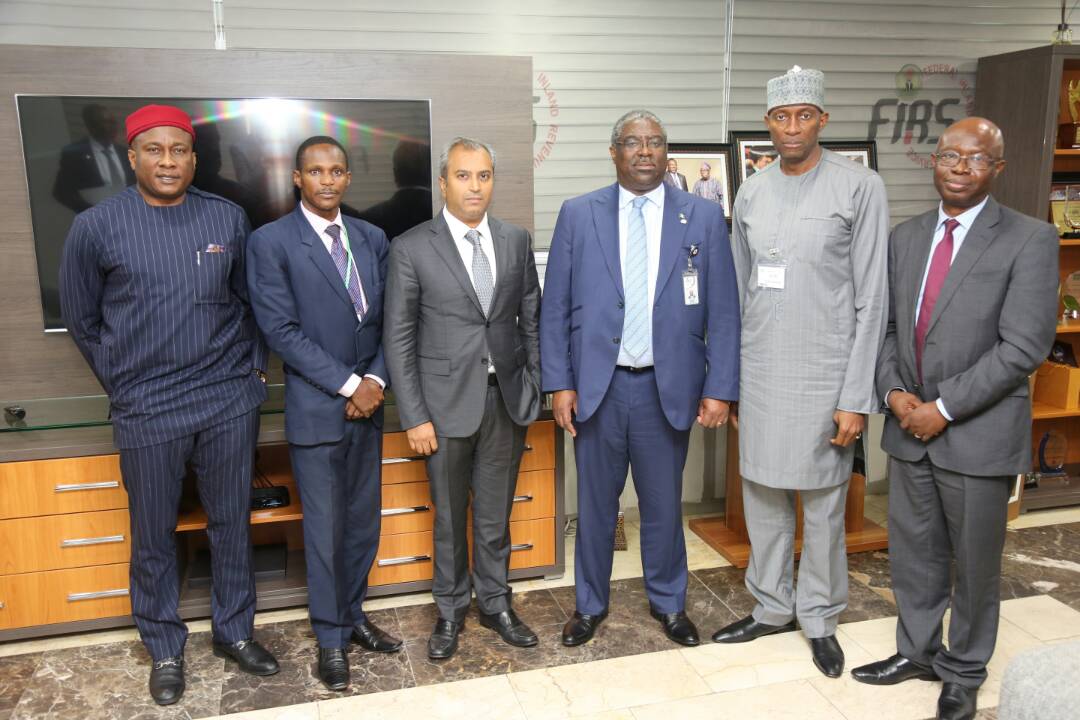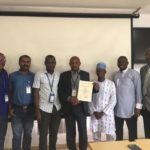
There is the need for the federal government to intervene to end the stigmatization of Nigeria as a high-risk country by aircraft leasing companies
All over the world airlines depend on government policies to prosper or to stagnate. This is because air transport being a sensitive business that has to do with international movement is highly influenced by diplomatic and commercial interests of government.
Also, as an international business, air transport is globally regulated and follows similar standard from country to country.
But because of government interest, it localises these policies and regulations to adhere to its economic and international goals, while at the same time maintaining global standard.
Also, because of the international nature of aviation, Nigeria and many developing countries in the world depend on multinational aircraft manufacturers, suppliers, lessors, maintenance organisations and others for acquisition, maintenance of aircraft and training of personnel.
So decisions made by these organisation in addition to that of global aviation agencies affect and determine the fortunes and misfortunes of Nigerian airline operators.
Cape Town Convention
The Cape Town Convention on International Interests in Mobile Equipment, or Cape Town Treaty is an international treaty intended to standardise transactions involving movable property like aircraft, ship and others. It enhances easy leasing of this equipment with strict adherence to the rules of engagement. Nigeria domesticated the treaty about in 2008 but joined the Convention in 2003. In domesticating the Treaty, it agreed to abide by its conditions. It was expected that Nigerian airlines in keeping with the policies of the Convention would be able to lease aircraft and pay monthly, for example, for the lease instead of deploying a whopping sum to purchase aircraft. But Nigeria has not been very successful because some airlines abused the process, which has made leasing companies label Nigeria as high-risk country. This does not only affect Nigerian airlines leasing aircraft; it also affects them in aircraft insurance premium and in the cost of other services.
Aircraft Leasing and Purchase
An airline operator told THISDAY that to understand the benefit of Cape Town Convention is to look at these two scenarios. If airline A is allowed to lease aircraft, it can use $73 million dollars to lease eight aircraft and as the aircraft are in operation it would be generating money to pay the lessor. In doing that it would be in business, generate revenue and earn profit. Also with eight aircraft in operation the airline may provide jobs to about 2000 persons. Compared to airline B, for example, which has $75 million and was not allowed to lease aircraft but has only one choice, to out rightly purchase the aircraft. The cost of a new aircraft of about 135-passenger capacity, whether Boeing, Airbus or Embraer is about or near $75 million, which means the airline can only purchase one aircraft with the money. If the airline decides to go for healthy used aircraft, it may buy about three and there may not be money to carry out checks on them. So it costs hugely to own aircraft but less to lease as commercial operator.
So the Cape Town Convention provides Nigerian operators the choice to lease aircraft but because Nigeria is stigmatised with country risk and major lessors have blacklisted the country, it would be difficult for Nigerian operators to acquire operational equipment.
According to the operator, this explains why the fleet of Nigerian airlines is diminishing because many airlines that hitherto owned aircraft are losing them. It is not only that it is difficult for Nigerian carriers to acquire aircraft, if some of them are able to negotiate with lessors to get aircraft, it comes at high cost both in price and in insurance premium and also it is accompanied by other outrageous conditions. Not only that; the lessors rarely give Nigerian airlines choice equipment. “And they are usually anxiously waiting for any infraction to withdraw the aircraft.”

Genesis
According to former Managing Director of Virgin Nigeria Airways and currently the CEO of Ropeways, a cable company, Capt Dapo Olumide, Nigerian airlines are notorious for defaulting on leasing.
At a presentation he made in recent Aviation Round Table (ART) breakfast meeting, he recalled that some airlines in the past used litigation to hold back leased aircraft and when the lessors came for them the court would rule against their taking them back. In fact, there were occasions leased aircraft were allowed to rot away in Nigeria because the lessee airlines refused to return them after they had defaulted in agreement.
But the latest incidents were that of First Nation Airways and Top Brass whereby the lessors could not recover their aircraft. THISDAY learnt from the Nigerian Civil Aviation Authority (NCAA) that Aircab that leased two aircraft to First Nation Airways could not recover them when there was default. But the airline in defence said that it did not default and therefore kept the aircraft in Nigeria against the wishes of the lessor.
It was the same experience with Top Brass that leased Bombardier Dash 8-Q300 from Seagold and also refused that the company should be allowed to recover its equipment and also went to court to stop the recovery until NCAA intervened.
By helping Seagold to recover the Bombardier Dash 8-Q300 aircraft, Top Brass took NCAA to court.
Implementing Cape Town Convention Conditions
But the Director General of NCAA, Captain Muhtar Usman said that by reneging on the terms of agreement for leasing, some Nigerian airlines have damaged the image of the country in the global aviation market and made it difficult for lessors to lease aircraft to Nigerian operators.
Such bad image, he said has also affected even the acquisition of spares and made insurance companies to be circumspect about insuring Nigerian airlines aircraft. It has also contributed in making the global aviation community see Nigeria as a harsh environment for business. This has reflected in the high insurance premium Nigerian airlines pay, which is the highest in West Africa and more than double what is paid in Europe.
Muhtar noted that by helping the lessors recover their aircraft, NCAA is merely abiding by the Cape Town Convention protocol, which Nigeria is signatory to and also giving hope to lessor that they would always recover their aircraft if the airline that leased it defaulted on the terms of leasing.
“The aim of having the Cape Town Convention is to help, especially African airlines to be able to get leases easily and at affordable prices. Of course, it came with certain conditions because the people who are going to lease will always need to have some kind of comfort that if there is any default they will be able to recover their mobile equipment, aircraft, engine or anything along that line.
“Before we became signatory to Cape Town Convention, cost of leases were quite high and difficult to come by because of the difficulty experienced by those lessors in getting back their aeroplanes whenever there were defaults from the airlines. Of course, Nigeria has signed, we have ratified and we have even started implementing those provisions. The only problems with the implementation which we have been working to try and remove is where the airline which has leased the aircraft will go to court and ask for an ex-parte motion or order to stop the aircraft from either being de-registered or taken out of Nigeria,” Captain Usman said.
He said that NCAA has been working with the Judiciary through the Ministry of Justice to educate the Judiciary on the need to ensure that those Cape Town Convention provisions are maintained.
Government’s Intervention
The CEO of Aero Contractors, Capt Ado Sanusi told THISDAY that the only way out of the blacklisting of Nigeria by lessors was for the federal government to assure the global aviation community that it would ensure that Cape Town Convention was fully implemented by the country’s regulatory authority, the Customs and the judiciary so that when a lessor wished to recover its aircraft default it could do so without hindrances.
“Now, how do we solve the problem, since we have identified why some companies cannot lease aircraft or engine in that matter? The answer is to go back to the drawing board and ensure that when there is default the Nigerian Civil Aviation Authority will immediately deregister the airplane. That is what is called idera. Immediately there is a dispute and the owner of the asset notifies NCAA, the agency is obligated by law to deregister the airplane immediately. Then the airplane is no longer under our jurisdiction.
“The moment that is done; that is not the end because the Cape Town Convention also suggests that the government of the country in conjunction with the authority (NCAA) will assist the owner of the asset to transport and make sure that the transportation of the asset out of the country is hitch free. So concerned government agencies are expected to assist to take the asset (aircraft) out. Somebody may ask, what of if the owner of the asset is the person at fault? Yes, but you give him his asset first, then based on your agreement you can go to court where the agreement has jurisdiction,” Sanusi explained.

Full Implementation
A former Chief Operating Officer of Medview Airline, Lukeman Animaseun told THISDAY that Nigeria is not fully implementing the Cape Town Convention, which it is signatory to.
“Before you lease any aeroplane, NCAA will sign Cape Town Convention form, known as Idera, which obligates NCAA to comply with the lessor if he wants the lessee to return aircraft leased in the event the airline refused to pay for the lease or any other issue. If you fully abide by Cape Town Convention, no court can stop a lessor from taking back his aircraft and most of the time it is the lessee that do not keep to the agreement, 98 per cent of the time.
“Take the case of a Nigerian airline that leased three aircraft but did not pay the lessors but grounded one aircraft and used it to repair the other one and when the lessor, Air Cab came to take back their aircraft he went to court. NCAA should have insisted that Air Cab takes its aircraft,” he said.
But as the Director General of NCAA said, the regulatory authority is working with the Ministry of Justice to get the Judiciary also adopt the Cape Town Convention so that when such cases come to court they treat it in accordance to the principles of the Convention.
THISDAY






